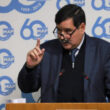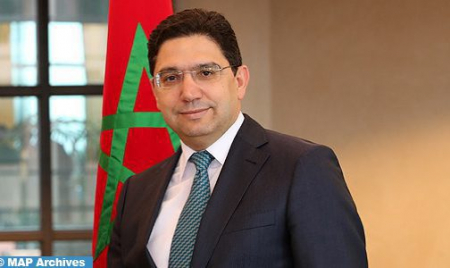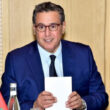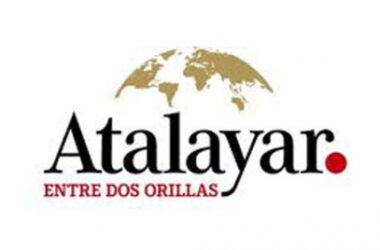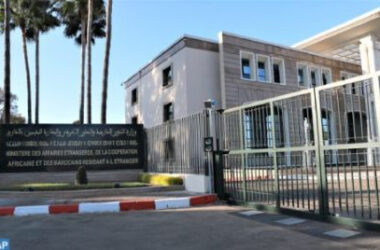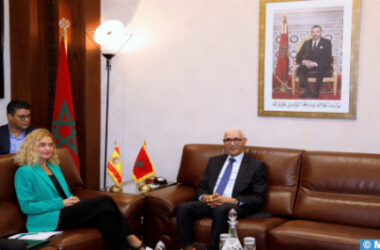This meeting is organized by Morocco and The United Nations Office of Counter-Terrorism (UNOCT) in order to highlight the positive impact of the UNOCT regional Program Office in Africa headquartered in Rabat. Held within the framework of the UN Third Counter-Terrorism Week that kicked off Monday, the High-level meeting was attended by UN Under Secretary General for Counter-Terrorism, Vladimir Voronkov, Portuguese minister of Justice, Catarina Sarmento Castro and Morocco’s Permanent Representative to the United Nations, Ambassador Omar Hilale and other UN officials.
In his statement, Bourita said that terrorism in Africa now represents one of the most challenging threats that needs to be confronted swiftly, through coordinated actions within the spirit and principles of multilateralism, stating that in 2022, 60% of all terrorism deaths globally occurred in sub-Saharan Africa, compared to 48% in 2021.
“Multilateral action to fight against terrorism is no more optional. It is the only option”, he underlined, noting that the countries that tried to combat the terrorist threat individually simply failed the same as those that tried to import standard and one-size-fits-all approaches to address terrorism.
In this respect, the minister pointed out that Morocco, guided by the strategic commitment to supporting the African States as a paramount Foreign Policy principle under the leadership of His Majesty King Mohammed VI, took tangible steps in 2021 when the first UNOCT regional Program Office in Africa was established in Rabat.
Since the inauguration of the Office, Morocco has spared no effort to support its mission and activities politically, financially, and with in-kind assistance, he stated, adding that this structure now stands as a reliable knowledge hub and a trusted regional center for capacity building in counter terrorism in Africa.
The minister also highlighted the support of international partners, the dedication of the Program Office in Rabat and constant support of the UNOCT New York Team, saying this concrete partnership propelled the increasing participation from brotherly African countries to the Rabat Program Office activities.
“We also welcome the growing interest from partners, to support capacity building activities relying on Moroccan expertise and drawing from the Kingdom’s counter terrorism experience”, he indicated, stating that the Marrakesh Platform for Heads of African Security and Counter Terrorism Agencies is another landmark of the Morocco-UNOCT partnership.
Launched in 2022, this platform, which held its 2nd meeting in Tangiers earlier this month, brought a genuine added-value to the Counter Terrorism regional and multilateral architecture. It offers a forum for dialogue between dedicated agencies, to better identify, analyze and deter terrorist threats in Africa. It also consolidated a momentum for a better coordinated counter-terrorism response.
The Moroccan official hoped that the Rabat Program Office would further develop collaborative activities that focus on three key parameters: Designing programs that are tailored to the African priorities; building capabilities on the basis of African expertise and developing a network of practitioners, and experts, to oversee the implementation of programs in their respective African countries.
The success of the UNOCT Program Office in Rabat greatly depends on a mutually beneficial collaboration with and among beneficiary African States, he said, noting that the partnership between UNOCT Program Office and Beneficiary African countries can foster regional cooperation.
Commending recent interactions between the UNOCT Program Office and the “African Atlantic States Initiative”, the minister said that concrete results are expected from this partnership, encouraging the UNOCT to further engage with emerging African regional initiatives, such as the “Accra Initiative” and inviting the UN organ to facilitate access to counter-terrorism innovative methodologies, given that terrorist groups increasingly exploit new technologies, such as drones, virtual assets and encrypted social platforms, which require swift countermeasures.
The Moroccan minister of Foreign Affairs further underlined that the partnership between the UNOCT Program Office and African countries should also recognize the importance of addressing the conditions conducive to violent extremism and terrorism, indicating that this can be achieved by promoting programs focused on countering violent extremism drawing from African values of coexistence and tolerance.
In this regard, Bourita quoted an excerpt from a Speech by His Majesty King Mohammed VI in which the Sovereign states: “My firm belief in the importance of coexistence and dialogue is second only to my commitment to moderation and tolerance, and to the rejection of all forms of prejudice, hatred and extremism. I am convinced, as well, of the need to implement policies that facilitate the achievement of these goals”.
The minister concluded by saying that Morocco will remain relentlessly committed to cooperation with UNOCT and to the success of its Program Office in Rabat, as a contribution to peace, security and stability of the African continent and across the globe.
The new Program Office is working to develop and implement accredited programs aimed primarily at capacity building and the development of skills in the field of counter-terrorism, particularly in terms of security, investigations and prosecutions, management of prisons and borders, disengagement, rehabilitation and reintegration. It relies on the pooling of the expertise of Morocco and ONUCT in order to provide quality training for the benefit of African States, according to a collaborative and united approach reflecting a spirit of collective responsibility.
This high-level meeting, moderated by the Director of Global Affairs at the Ministry of Foreign Affairs, African Cooperation and Moroccans Living Abroad, Ismail Chekkouri, was also attended by the President of Al Akhawayn University, Amine Bensaid whose establishment collaborates with ONUCT mainly to develop accredited university programs and joint research activities in the fight against terrorism.


